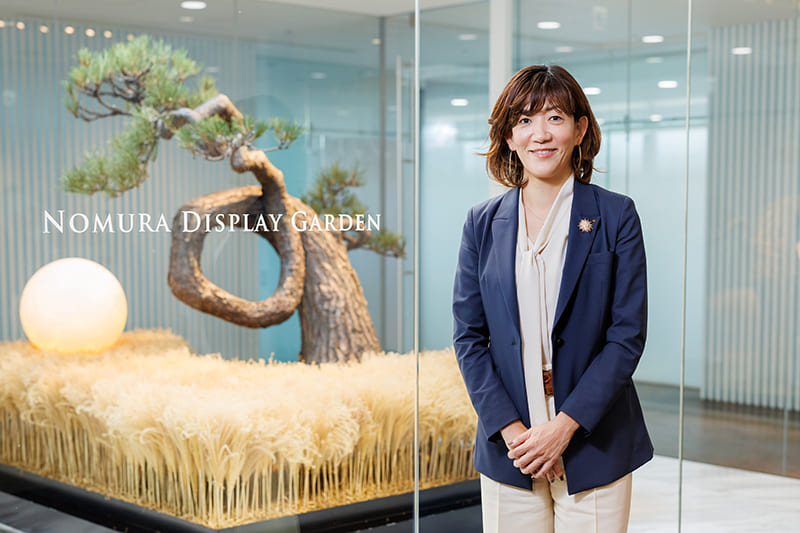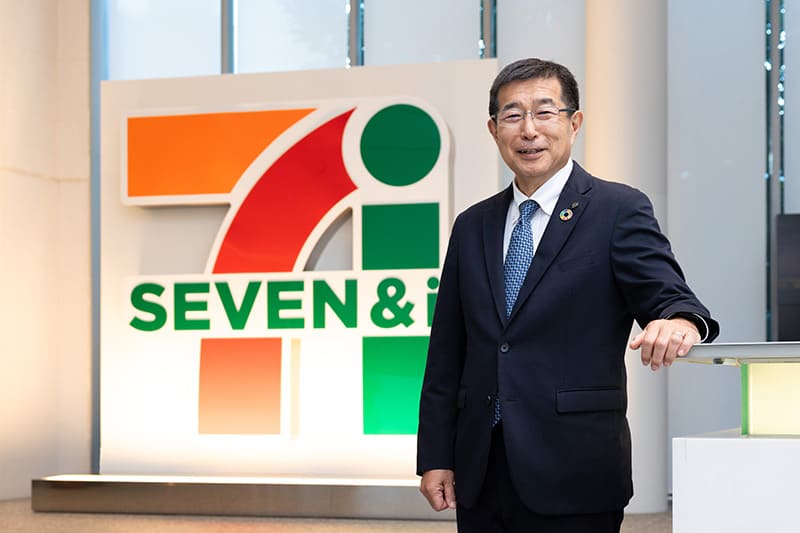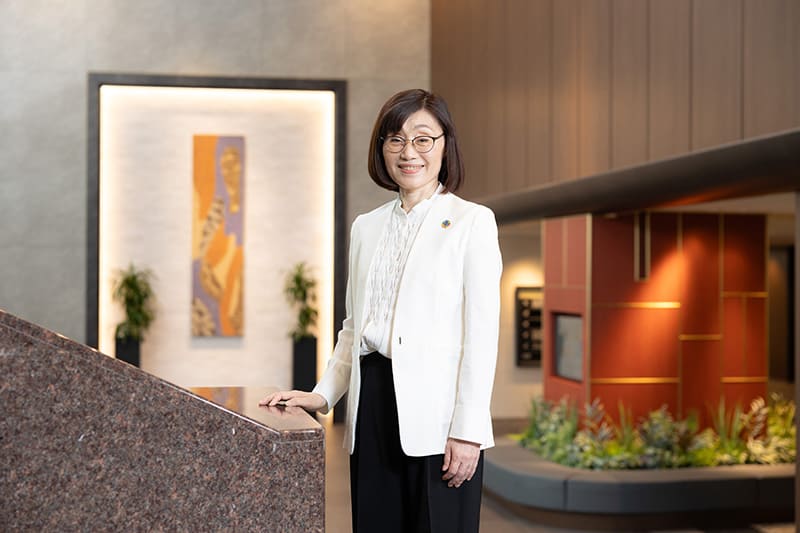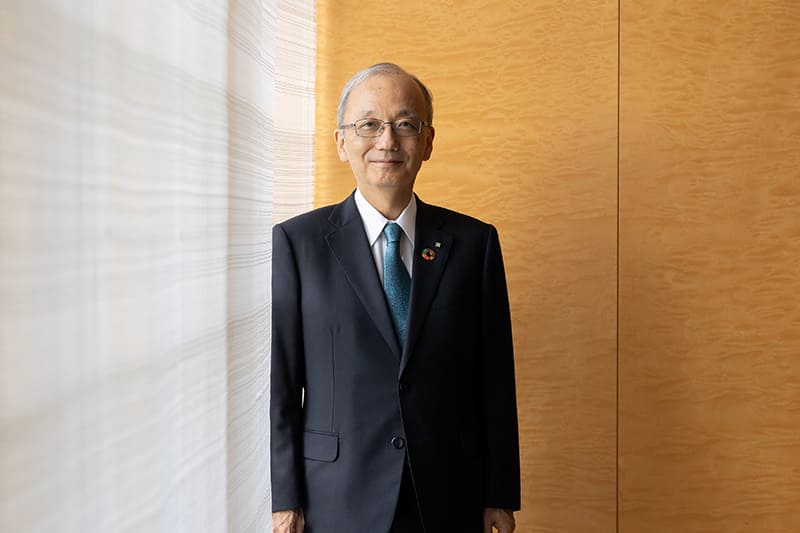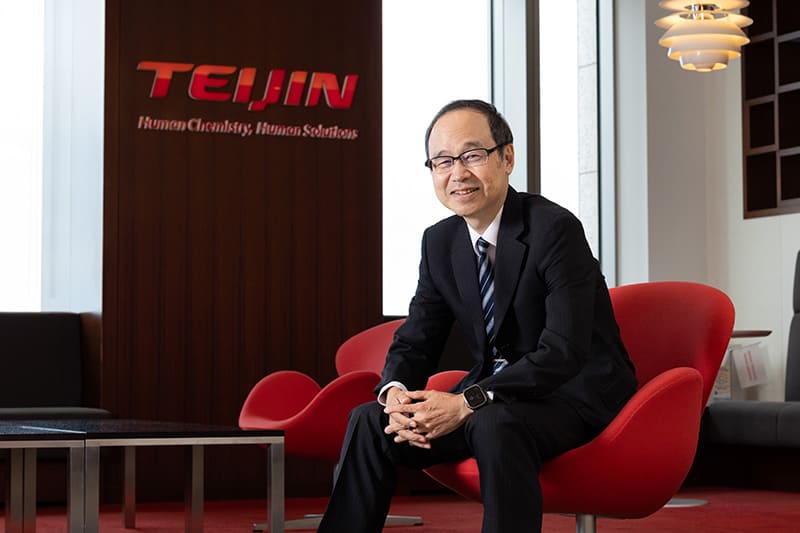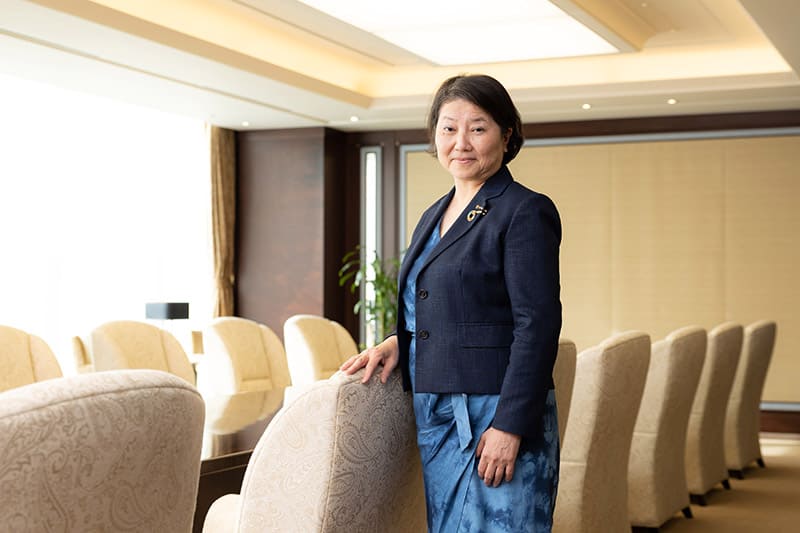January 17, 2025
Ex-Sony exec makes bold moves at medical company
Contributing writer
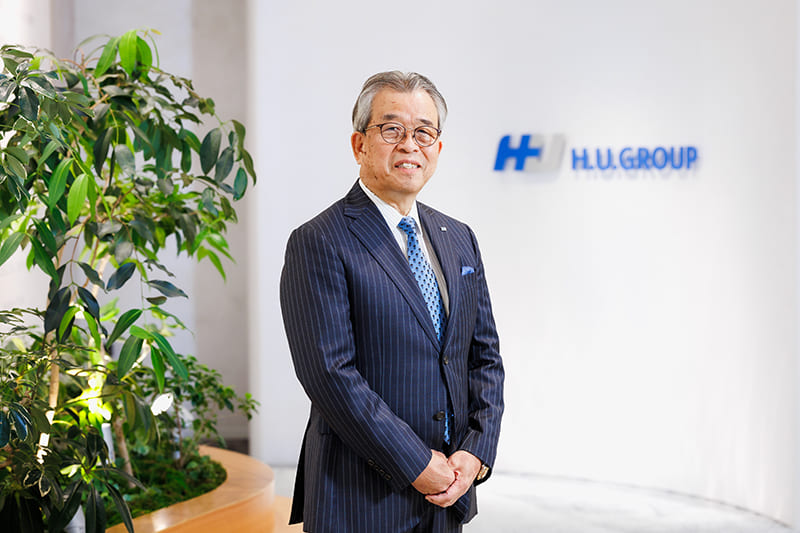
When Shigekazu Takeuchi took the position of CEO at the clinical test-related company Miraca Holdings Inc. in 2016, he was puzzled by its conservative nature and divided structure. Coming from a creative entertainment industry, it is no wonder that he was surprised.
The firm, now called H.U. Group Holdings Inc., has a 75-year history in the much-regulated medical field.
“It is true that there was a large gap from the industry I had been in. In many ways, I felt it was a very rigid and outdated organization, and the reason why I had been invited to this holding company was to make reforms on this,” said Takeuchi, who is also the H.U. Group’s director, chairman and president, during a recent interview, part of a monthly series by Naonori Kimura, a partner for the consulting firm Industrial Growth Platform Inc.
What Takeuchi found to be the biggest issue was that Miraca had not taken advantage of synergies after it was formed in 2005 through the integration of the in vitro diagnostics (IVD) business Fujirebio, established in 1950 as Fujizoki Pharmaceutical, and SRL, formerly Tokyo Special Reference Laboratories, which focused on esoteric tests.
The two did not share what was necessary. They did not even use the same digital infrastructure, including corporate email address domains. For example, Fujirebio was a global leader in the field of IVD testing. But SRL, the No. 1 clinical laboratory testing business in Japan, rarely used diagnostic reagents and machines manufactured by Fujirebio.
To Takeuchi, who had earned a high reputation for his leadership at music, animation and other entertainment businesses, including as chairman of Sony Pictures Entertainment, the lack of flexibility and efficiency was a big obstacle for future growth.
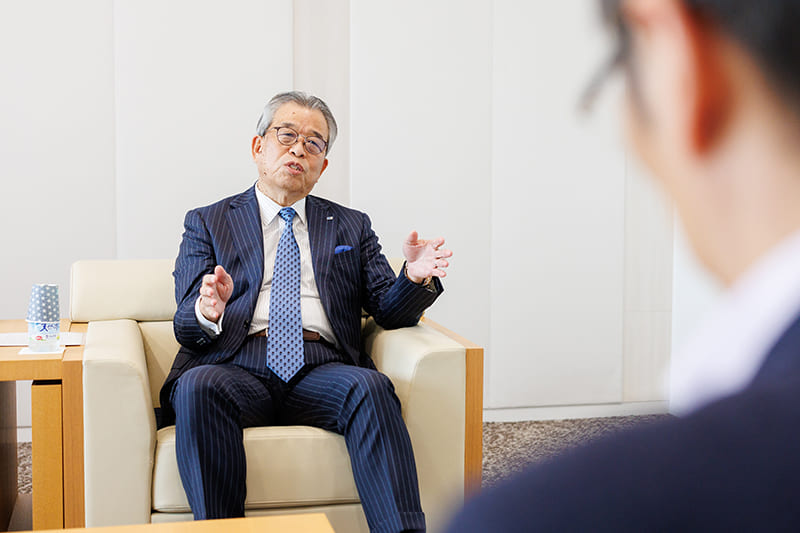
“It looked very odd to me that they did not achieve synergies within the same group,” he said. “The vertically divided structure prohibited them from benefiting from their strengths and creating cooperation with each other.”
He started to introduce reforms, although they raised opposition from some employees who were used to their company’s old ways, he said.
The first was announcing that the holding company would be renamed in July 2020 from Miraka to H.U., meaning “health care for you,” and marking fiscal 2017 as the year when the group was reborn. This was the start of his reforms to eliminate compartmentalization as much as possible and achieve maximum benefits as a group. “To take a big step forward, I wanted to clarify my strategy of uniting the group,” he said.
For example, he began conducting what he called “slash-and-burn reforms,” meaning that the group should drop the step-by-step kaizen approach to improvements that many traditional Japanese companies follow. Instead, it should boldly abandon its conventional ways and start over from scratch. The group decided to stop prioritizing numerical targets for its five-year business plan starting in fiscal 2025, calculated based on past results. “I told them not to create a medium-term plan by starting to present numerical targets. We’ve got to show what to do, what to change and how to change it during the next five years. By doing these things, the group can generate its numerical targets. That’s what I think the midterm plan should be,” Takeuchi said.
At the same time, Takeuchi took steps to widen the potential business opportunities in the field of health care amid the rapidly graying population. Previously, the group focused on esoteric testing exclusively for hospitals. Now, in addition to its strength in this field, it started to also focus on test kits, which provide care for more people.
“That’s because we should pay more attention to what we can do to prevent people from becoming ill,” Takeuchi said. Increasing life spans should not mean people spending decades in bed, he added.
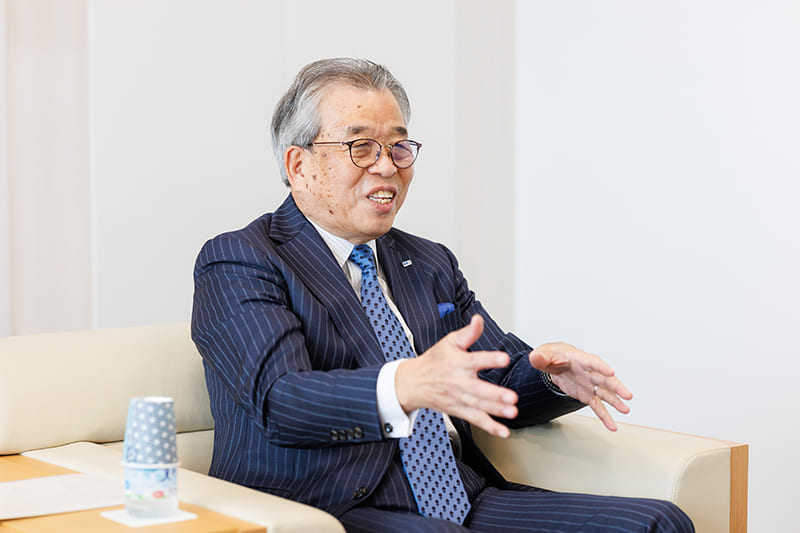
For its business hub, H.U. constructed a 122,000-square-meter facility with its huge testing laboratory, the H.U. Bioness Complex, in the western Tokyo city of Akiruno. The testing laboratory is equipped with a 24-hour operation system using fully automated lines, robots to carry specimens brought in from hospitals. It greatly improves on the efficiency of testing at the former main laboratory site just to the southeast in Hachioji, whose multiple story buildings made it hard for staffers to transport test samples efficiently between floors or buildings.
Also, the new center is designed to encourage interactions among the people working there. The laboratory is connected to other facilities — an R&D center and a welfare center, including a cafeteria — through corridors designed like a neural circuit. They are surrounded by a large green garden. “Workers spend intensive time all day handling test samples, so they need a release every now and then,” Takeuchi said.
The CEO also aims to maximize each employee’s potential through training and education. In 2022, he launched the H.U. Business College, where workers broaden their knowledge to areas including logical thinking, marketing, management strategy, accounting and legal affairs.
To encourage young workers’ motivation, the holding company has introduced a system to let them hunt for positions across the group.
The focus in the next few years will be on how the holding company can cultivate its people to be more responsive amid a drastically changing medical world, where conventional medical tests may disappear as genomic medicine advances further. Takeuchi is zeroing in on the few years between when the last stage of the new laboratory is fully launched, in the current business year, and after the financial burden of the lab’s depreciation eases in financial results.
“We must be flexible on the changes in the medical world. So the next thing we should do is to strengthen our internal capital, such as the organization and the human resources,” he said.
Naonori Kimura
Industrial Growth Platform Inc. (IGPI) Partner
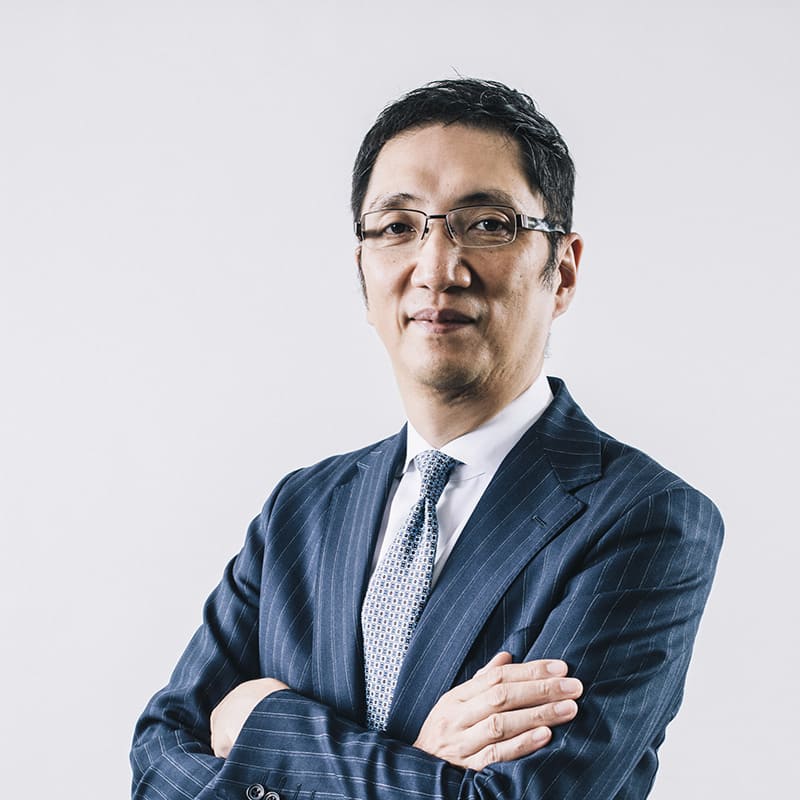
Takeuchi maintained that corporate power is the aggregation of individual power. His comment carries a lot of weight as he has taken the initiative in reforming his company’s corporate culture as well as the personnel system for the past eight years since he became the president.
It ought to be extremely hard to reform the mindsets of employees who are required to pursue operational excellence in the much-regulated medical industry, linked to life and death. But the reforms are rooted in the corporate culture following his long efforts to shape a vision for the future, with a determination that the company will work on them over a 10-year time span. One example is the construction of the H.U. Bioness Complex. In the interview, Takeuchi mentioned unique slogans such as “slash-and-burn reforms” and “HaPpy WorK (WaKu waku).” Their purposes filter into the workers, proving that they are not just catchy phrases.
Takeuchi said the reforms’ worth is being put to the test now, with no more special profits coming from COVID-19 clinical tests.
The group will grow further by expanding into health care services, in addition to its clinical tests and in vitro diagnostics that help save lives and have made it a company that is essential in addressing social issues in Japan such as the rapidly graying population and growing medical costs.

